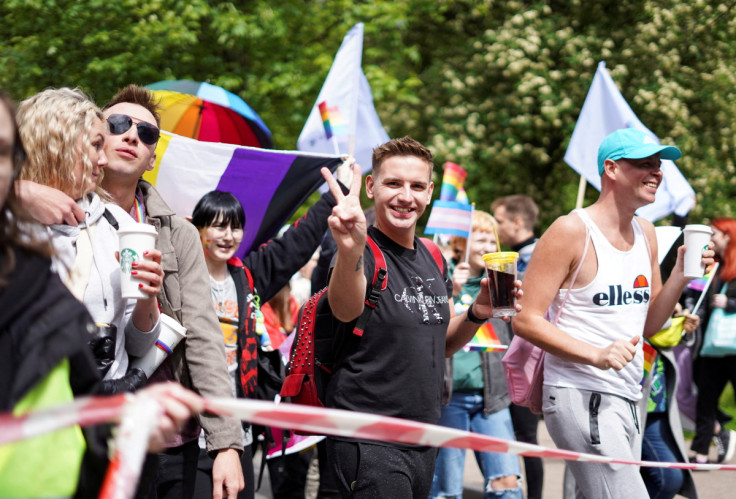British Embassy joins 2023 Pride Parade in Guatemala
Last year three members of the LGBTQIA+ community were killed in Guatemala, during the run-up to Pride 2022. This year the British Embassy paid tribute to the hard work of the LGBTQIA+ community in Guatemala.

In 2022 Guatemala's Congress voted in favour of a law which prohibits same-sex marriages. However, although the law did not pass, same-sex marriage is not legally recognised in Guatemala.
According to Natalia Marsicovetere, a Social Psychologist and activist for sexual and gender diversity rights in Guatemala, the legislation, which also banned schools from teaching about sexual diversity and gender quality, criminalised anyone who promoted access to abortion, and made it illegal to prosecute anyone who discriminates against the LGBTQIA+ community, was one of the country's biggest attempts to deprive LGBTQIA+ people of their rights.
In Guatemala, there is no comprehensive civil legislation that protects people from discrimination on the grounds of sexual orientation and gender identity. There is also no legal gender recognition procedure for transgender people.
For the second year, the British Embassy attended the Guatemala Pride Parade, joining the US, Canada, and Sweden. The Embassy paid tribute to the hard work of the LGBTQIA+ community in Guatemala, as well as the community around the world who work tirelessly to end discrimination and fight for the human rights of LGBTQIA+ individuals.
Guatemalan Pride, which launched in 2000, has grown to be one of the largest LGBTQIA+ pride marches in Central America. The Guatemalan Pride Parade boasts artistic, cultural and educational events like film screenings, seminars and performances.
LGBTQIA+ K'iche' Mayan indigenous people in Guatemala also attended the parade, which took place on 22 July.
De las mejores experiencias que he tenido😍😍😍
— Daniel Mejia (@Dann_M20) July 22, 2023
Desfile PRIDE Guatemala 2023 pic.twitter.com/Yn6jj9F5uC
Unfortunately, however, Guatemalan Pride has been subject to several threats and much controversy from conservative and religious organisations who are opposed to the LGBTQIA+ community's visibility.
Members of the LGBTQIA+ community are regular victims of violence and discrimination, due to the lack of dedicated protection on LGBTQ+ rights.
Civil society organisations in Guatemala have also reported that at least 25 members of the LGBTQIA+ community had been killed within the first 10 months of 2022.
In June 2022, two transgender women and a gay man were murdered in less than a week during pride month. Andrea González was a prominent transgender activist who was shot dead near her home in Guatemala City. Andrea González, who was killed at 28 years old, worked with the Otrans Reinas de la Noche (Queens of the Night) organisation that fights for transgender rights in Central America.
Aura Rodríguez, a Communications Coordinator at Otrans Reinas de la Noche said: "Every day the human rights of trans people are being violated."
Rodríguez added: "The killings reveal how a state that does not ensure recognition of gender identity can not only violate rights every day through a lack of conditions for access to health, education, work and security but also fails to protect its citizens."
Another member of the Otrans Reinas de la Noche organisation was also murdered a few days prior. Cecy Ixpatá was assaulted and died from her injuries on 9 June in a hospital only 50 miles north of Guatemala City.
On 14 June, Manuel Vargas Villeda, a gay man who was only 22 years old, was shot and killed in Morales.
Speaking of the brutal violence against innocent members of the LGBTQIA+ community in Guatemala, Henry España, a Human Rights Ombudsman, said: "It sends a message of terror and fear to the entire LGBTQ+ community around the country."
Street gangs dominate areas of Central America, including Honduras, El Salvador, and Guatemala. Members of notorious gangs like MS-13 (Mara Salvatrucha) and the 18th Street gang have been held accountable for targeting the LGBTQIA+ community.
In El Salvador, at least seven trans women and one gay man were killed within six months – at the hands of street gangs.
Human Rights Watch reported that street gangs in Central America often target the LGBTQIA+ community because it is widely known that they lack a large support network.
© Copyright IBTimes 2025. All rights reserved.






















